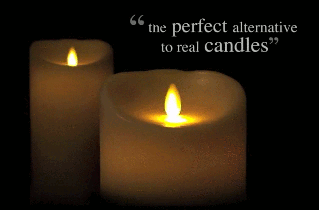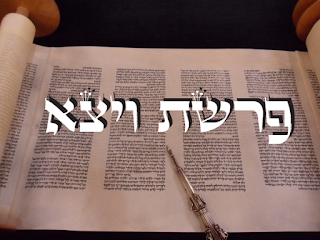Parashat Toldot - Genesis 25:19-28:9 - "Abraham's Tent" - Weekly D'var Torah From Rabbi John Ludemann
By Rabbi John Ludemann, BTh.
In this week’s portion we meet two brothers, and two nations
(Genesis 25:19-28:9). Much like those
brothers, their personalities and mindsets will be the cause of great
conflicts, with each other and with the nations they founded.
We meet up with the two brothers, in the womb. Their mother Rebecca is concerned. She notices that when she goes by an idolatrous temple, one side of her womb pulls toward it. When she walks past a house of study, the tent of Shem (the Malki-Tzadik)), the other side of her womb pulls toward that place (Genesis 25:22-23).
The older twin is called Esau (The Red one), and the younger called Jacob. The two boys could not be more different. Esau was rash. He let his passions guide him and avoided biblical study for life in the field as hunter and warrior. Jacob was one who studied, as the Hebrew bible states, “in Tents” (Hebrew “YeeShav Echalim”). He was in constant study of G-D’s teachings.
So you have two men, Esau the “jock” knowing in the ways of the world, and Jacob the “bookworm” (okay, scroll-worm) knowing the ways of G-D. They both had strengths. Esau had physical/worldly attitudes and Jacob intellectual/spiritual. Isaac, their father, loved Esau because he “put game into his mouth” (Genesis 25:28a). In Hebrew, it is an old idiom, meaning that not only did he feed him savory meats - he also told Isaac what he wanted to hear. Esau was one that knew that his actions were unseen by his father, and so he did what he wanted, as his passions guided him. Esau told his father what he wanted to hear, even though all saw what he was doing.
We meet up with the two brothers, in the womb. Their mother Rebecca is concerned. She notices that when she goes by an idolatrous temple, one side of her womb pulls toward it. When she walks past a house of study, the tent of Shem (the Malki-Tzadik)), the other side of her womb pulls toward that place (Genesis 25:22-23).
The older twin is called Esau (The Red one), and the younger called Jacob. The two boys could not be more different. Esau was rash. He let his passions guide him and avoided biblical study for life in the field as hunter and warrior. Jacob was one who studied, as the Hebrew bible states, “in Tents” (Hebrew “YeeShav Echalim”). He was in constant study of G-D’s teachings.
So you have two men, Esau the “jock” knowing in the ways of the world, and Jacob the “bookworm” (okay, scroll-worm) knowing the ways of G-D. They both had strengths. Esau had physical/worldly attitudes and Jacob intellectual/spiritual. Isaac, their father, loved Esau because he “put game into his mouth” (Genesis 25:28a). In Hebrew, it is an old idiom, meaning that not only did he feed him savory meats - he also told Isaac what he wanted to hear. Esau was one that knew that his actions were unseen by his father, and so he did what he wanted, as his passions guided him. Esau told his father what he wanted to hear, even though all saw what he was doing.
As it states in Malachi 1:1-3, G-D was clear on what HE
thought of Esau:
“1 The burden of the word of the LORD to Israel by Malachi. 2 I have loved you, saith the LORD. Yet ye say: 'Wherein hast Thou loved us?' Was not Esau Jacob's brother? saith the LORD; yet I loved Jacob; 3 But Esau I hated, and made his mountains a desolation, and gave his heritage to the jackals of the wilderness.” (JPS, 1917).
Isaac was too blind (literally and spiritually) to see Esau for what he was, a hot headed liar and that Jacob was worthy of the birthright. G-D’s final test of Esau was when he was warring or hunting in the field and was too hungry to stand up. Jacob offered him lentils in trade of his birthright. Without care or hesitation, Esau sold it to Jacob (Gen. 25:29-34).
How often do we encounter such people who ‘put savory meat in your mouth’, yet we find by our own observation that they are not what they present themselves as? Sometimes we are too blind to see such people, even if that person is ourselves. “Walking the walk, while talking the talk” is a tough thing to do. Yet, even when we are alone, G-D is watching. We should be humbled by that thought. As the Psalmist states in Psalm 90:5-9:
“5 Thou carriest them away as with a flood; they are as a sleep; in the morning they are like grass which groweth up.
6 In the morning it flourisheth, and groweth up; in the evening it is cut down, and withereth.
7 For we are consumed in Thine anger, and by Thy wrath are we hurried away.
8 Thou hast set our iniquities before Thee, our secret sins in the light of Thy countenance.
9 For all our days are passed away in Thy wrath; we bring our years to an end as a tale that is told.”
(JPS 1917)
We must be mindful what we do, for if we think we have pulled the wool over the eyes of people, we cannot do it to G-D.
This is why Esau lost his birthright, and his blessing. He did not honor his parents and he did not honor the Almighty. Rebecca saw it, as did all the rest. Jacob’s “deception” was not his own. It was justice from a just G-D.
Next week: Uncle Laban.
“1 The burden of the word of the LORD to Israel by Malachi. 2 I have loved you, saith the LORD. Yet ye say: 'Wherein hast Thou loved us?' Was not Esau Jacob's brother? saith the LORD; yet I loved Jacob; 3 But Esau I hated, and made his mountains a desolation, and gave his heritage to the jackals of the wilderness.” (JPS, 1917).
Isaac was too blind (literally and spiritually) to see Esau for what he was, a hot headed liar and that Jacob was worthy of the birthright. G-D’s final test of Esau was when he was warring or hunting in the field and was too hungry to stand up. Jacob offered him lentils in trade of his birthright. Without care or hesitation, Esau sold it to Jacob (Gen. 25:29-34).
How often do we encounter such people who ‘put savory meat in your mouth’, yet we find by our own observation that they are not what they present themselves as? Sometimes we are too blind to see such people, even if that person is ourselves. “Walking the walk, while talking the talk” is a tough thing to do. Yet, even when we are alone, G-D is watching. We should be humbled by that thought. As the Psalmist states in Psalm 90:5-9:
“5 Thou carriest them away as with a flood; they are as a sleep; in the morning they are like grass which groweth up.
6 In the morning it flourisheth, and groweth up; in the evening it is cut down, and withereth.
7 For we are consumed in Thine anger, and by Thy wrath are we hurried away.
8 Thou hast set our iniquities before Thee, our secret sins in the light of Thy countenance.
9 For all our days are passed away in Thy wrath; we bring our years to an end as a tale that is told.”
(JPS 1917)
We must be mindful what we do, for if we think we have pulled the wool over the eyes of people, we cannot do it to G-D.
This is why Esau lost his birthright, and his blessing. He did not honor his parents and he did not honor the Almighty. Rebecca saw it, as did all the rest. Jacob’s “deception” was not his own. It was justice from a just G-D.
Next week: Uncle Laban.



Comments
Post a Comment